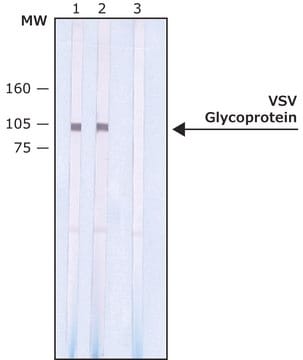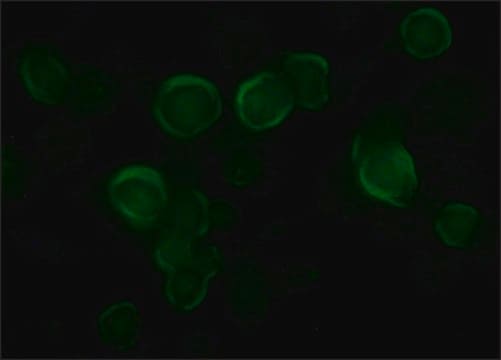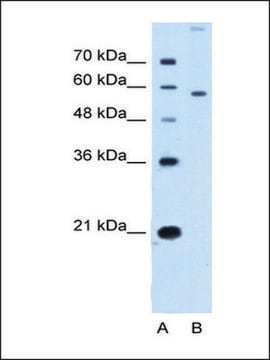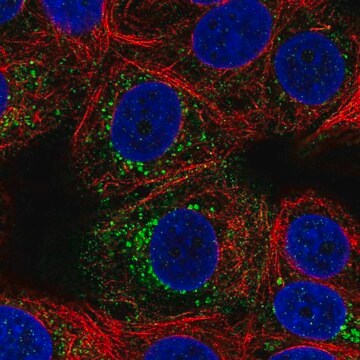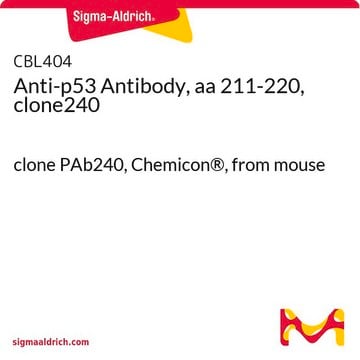SAB4200695
Anti-VSV Glycoprotein antibody, Mouse monoclonal
clone P5D4, purified from hybridoma cell culture
Sinónimos:
VSV, VSV glycoprotein, Vesicular Stomatitis Virus glycoprotein
About This Item
Productos recomendados
biological source
mouse
Quality Level
antibody form
purified immunoglobulin
antibody product type
primary antibodies
clone
P5D4, monoclonal
form
buffered aqueous solution
species reactivity
virus (Vesicular stomatitis virus (VSV))
packaging
antibody small pack of 25 μL
concentration
~1 mg/mL
technique(s)
immunoblotting: 0.5-1 μg/mL using whole extract of human HEK-293T cells over-expressing Vinculin with VSV-G tagged fusion protein.
immunocytochemistry: suitable
immunofluorescence: 5-10 μg/mL using COS7 cells over-expressing Vinculin with VSV-G tagged fusion protein.
immunoprecipitation (IP): suitable
isotype
IgG1
shipped in
dry ice
storage temp.
−20°C
target post-translational modification
unmodified
General description
Application
Biochem/physiol Actions
Physical form
Disclaimer
¿No encuentra el producto adecuado?
Pruebe nuestro Herramienta de selección de productos.
Storage Class
12 - Non Combustible Liquids
wgk_germany
nwg
flash_point_f
Not applicable
flash_point_c
Not applicable
Certificados de análisis (COA)
Busque Certificados de análisis (COA) introduciendo el número de lote del producto. Los números de lote se encuentran en la etiqueta del producto después de las palabras «Lot» o «Batch»
¿Ya tiene este producto?
Encuentre la documentación para los productos que ha comprado recientemente en la Biblioteca de documentos.
Nuestro equipo de científicos tiene experiencia en todas las áreas de investigación: Ciencias de la vida, Ciencia de los materiales, Síntesis química, Cromatografía, Analítica y muchas otras.
Póngase en contacto con el Servicio técnico